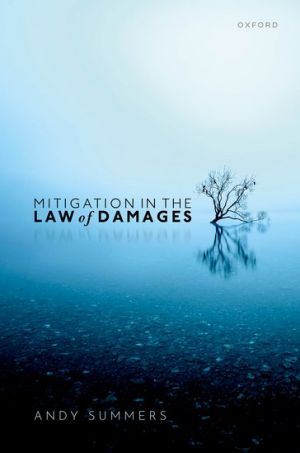
The law of mitigation determines how a claimant's own response to a breach affects the damages they can recover. It responds to the basic accusation: 'although I did wrong, you made things worse'. Mitigation applies to all claims for compensation, regardless of the claimant's cause of action and irrespective of the defendant's level of fault. It is amongst the most litigated doctrines in private law and has significant implications for general theories of damages, and yet has received relatively little scholarly attention to date.
Mitigation in the Law of Damages provides the first comprehensive theoretical and doctrinal treatment of this important area of the law in any common law jurisdiction. It argues that contrary to the leading texts on damages, judges have been right all along to explain mitigation as an aspect of causation. But to see why, we must look beyond the 'but-for' concept of causation and understand the 'common-sense' causal principles used to attribute responsibility outside the law. This approach reveals a new understanding of the rules of mitigation and their relation to other doctrines.
The implications are wide-ranging. First, mitigation applies symmetrically to benefits as well as harms, and encompasses a variety of damages doctrines that have previously been regarded as distinct. Second, the new account of mitigation advances our understanding of the legal concepts of causation, choice, and loss, and calls for a re-evaluation of existing theories of damages. Third, the book revives and develops arguments from Hart and Honoré's ground-breaking work 'Causation in the Law', with implications for every area of law where causal reasoning is invoked.
Original and thought-provoking, Mitigation in the Law of Damages restates and explains the law of mitigation in a way that is accessible to both academics and practitioners.